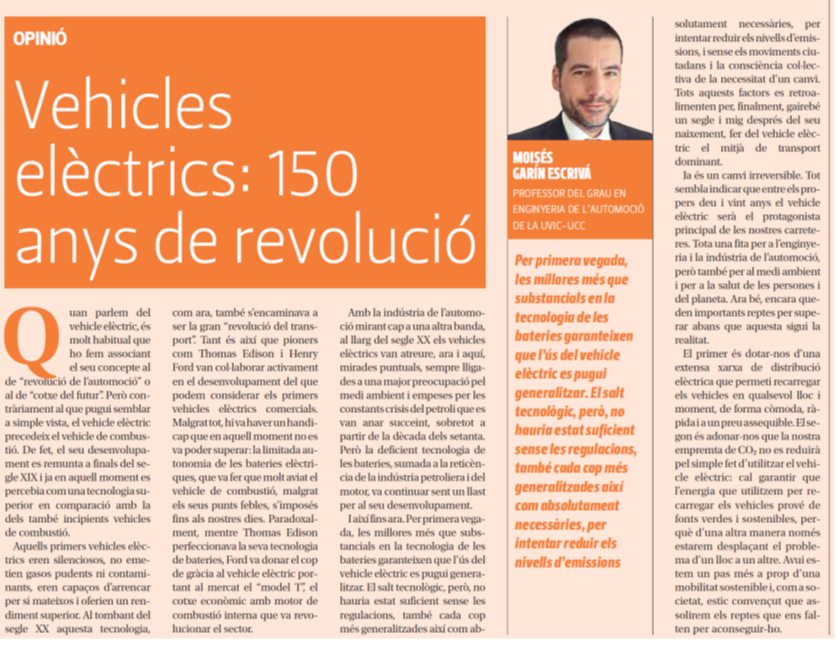When we talk about electric vehicle, is very common that we do it by associating its concept in the “automotive revolution” or to the “car of the future”. But on the contrary to what it may seem at first glance, the electric vehicle precedes the combustion vehicle. In fact, its development dates back to the turn of the century XIX and already at that time is perceived as a superior technology compared to the of the also incipient vehicles combustion. Those first electric vehicles were silent, they did not emit smelly or polluting gases, they were able to boot by themselves and offered a performance superior. At the turn of the 20th century this technology, as such, was also on its way to being the great “transport revolution”. So much so that pioneers such as Thomas Edison and Henry Ford actively collaborated in the development of what we can consider the former commercial electric vehicles. Still, there was a handicap which at that time is not could overcome: limited autonomy of electric batteries, which caused that very soon the combustion vehicle, though its weaknesses, imposed to this day. Paradoxically, while Thomas Edison was perfecting his technology of batteries, Ford struck the blow of grace to the electric vehicle carrying on the market the “model T”, the cheap car with internal combustion that revolutionized the sector.
With the automotive industry looking the other way throughout the 20th century vehicles electricians attracted, now and here, punctual glances, always tied to a greater concern for the environment and driven by the constant oil crises that are were happening, especially from the seventies. But the poor technology of batteries added to the reluctance of the oil industry and the engine continued to be a ballast for its development.
And so on so far. For the first time, the more than substantial improvements in the technology of the batteries ensure that the use of the electric vehicle can be generalized. The technological leap, however, is not would have been enough without the regulations, also every time more widespread as well as absolutely necessary, to try to reduce emission levels, and without citizen movements and the collective consciousness of the need for change.
 All of these factors feedback for, finally, almost a century and a half after his birth, making the electric vehicle the means of transportation dominant. It is already an irreversible change. All seems to indicate that among the next ten and twenty years the vehicle electric will be the protagonist main of our roads. A milestone for engineering and the automotive industry, but also for the environment and for the health of people and of the planet. Now, they are still there important challenges to overcome before this is the reality. The first is to have one extensive distribution network electric to recharge vehicles anywhere and moment, comfortably, quickly, and at an affordable price. The second is to realize that our CO2 footprint will not be reduced for the simple use of the vehicle electrical: it must be ensured that the energy we use to recharge the vehicles come from green and sustainable sources because otherwise only we will be shifting the problem from one place to another. Today we are one step closer to one sustainable mobility and, as a society, I am co
All of these factors feedback for, finally, almost a century and a half after his birth, making the electric vehicle the means of transportation dominant. It is already an irreversible change. All seems to indicate that among the next ten and twenty years the vehicle electric will be the protagonist main of our roads. A milestone for engineering and the automotive industry, but also for the environment and for the health of people and of the planet. Now, they are still there important challenges to overcome before this is the reality. The first is to have one extensive distribution network electric to recharge vehicles anywhere and moment, comfortably, quickly, and at an affordable price. The second is to realize that our CO2 footprint will not be reduced for the simple use of the vehicle electrical: it must be ensured that the energy we use to recharge the vehicles come from green and sustainable sources because otherwise only we will be shifting the problem from one place to another. Today we are one step closer to one sustainable mobility and, as a society, I am co nvinced that we will succeed the challenges we lack to achieve this.
nvinced that we will succeed the challenges we lack to achieve this.

Leave a Reply